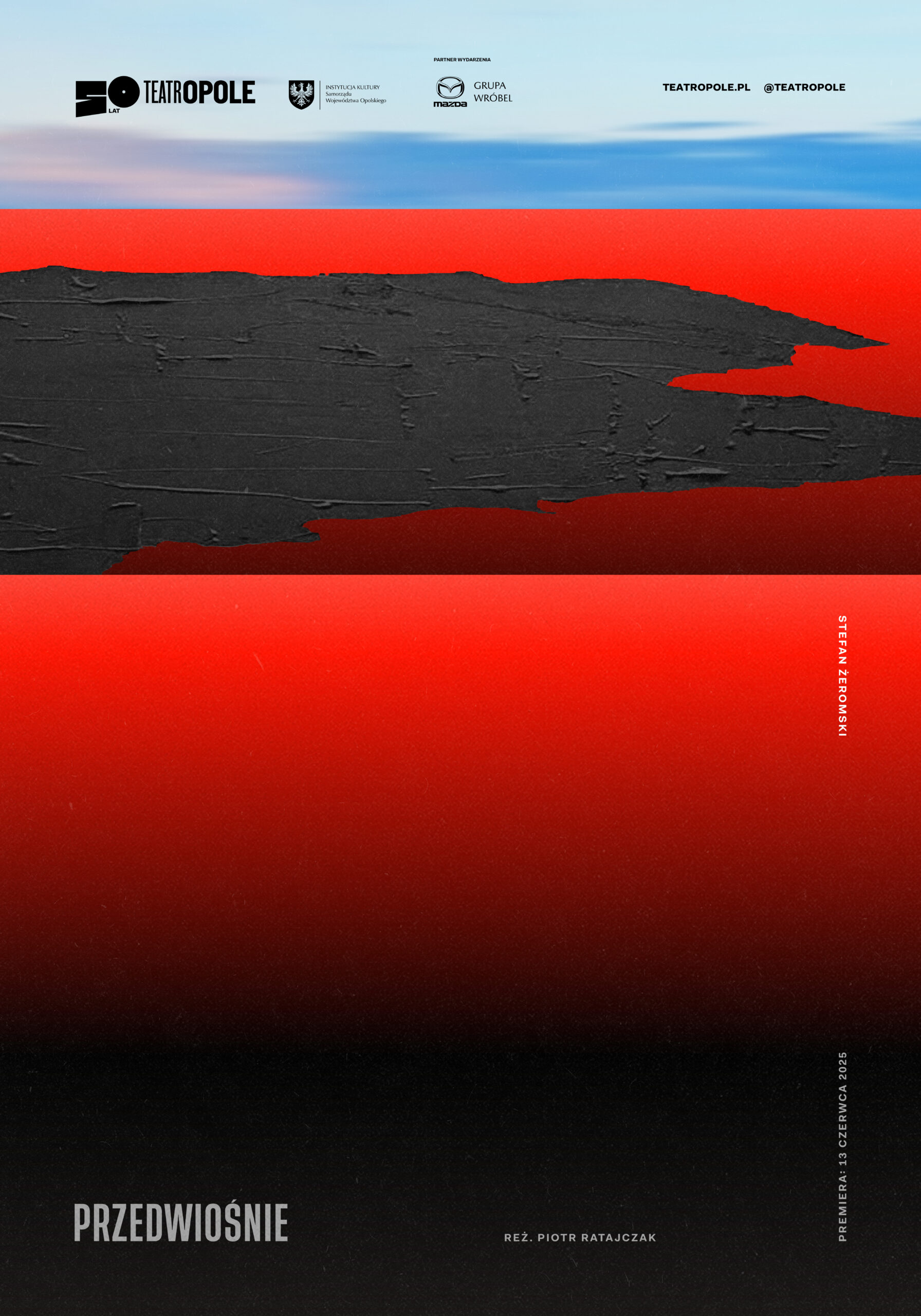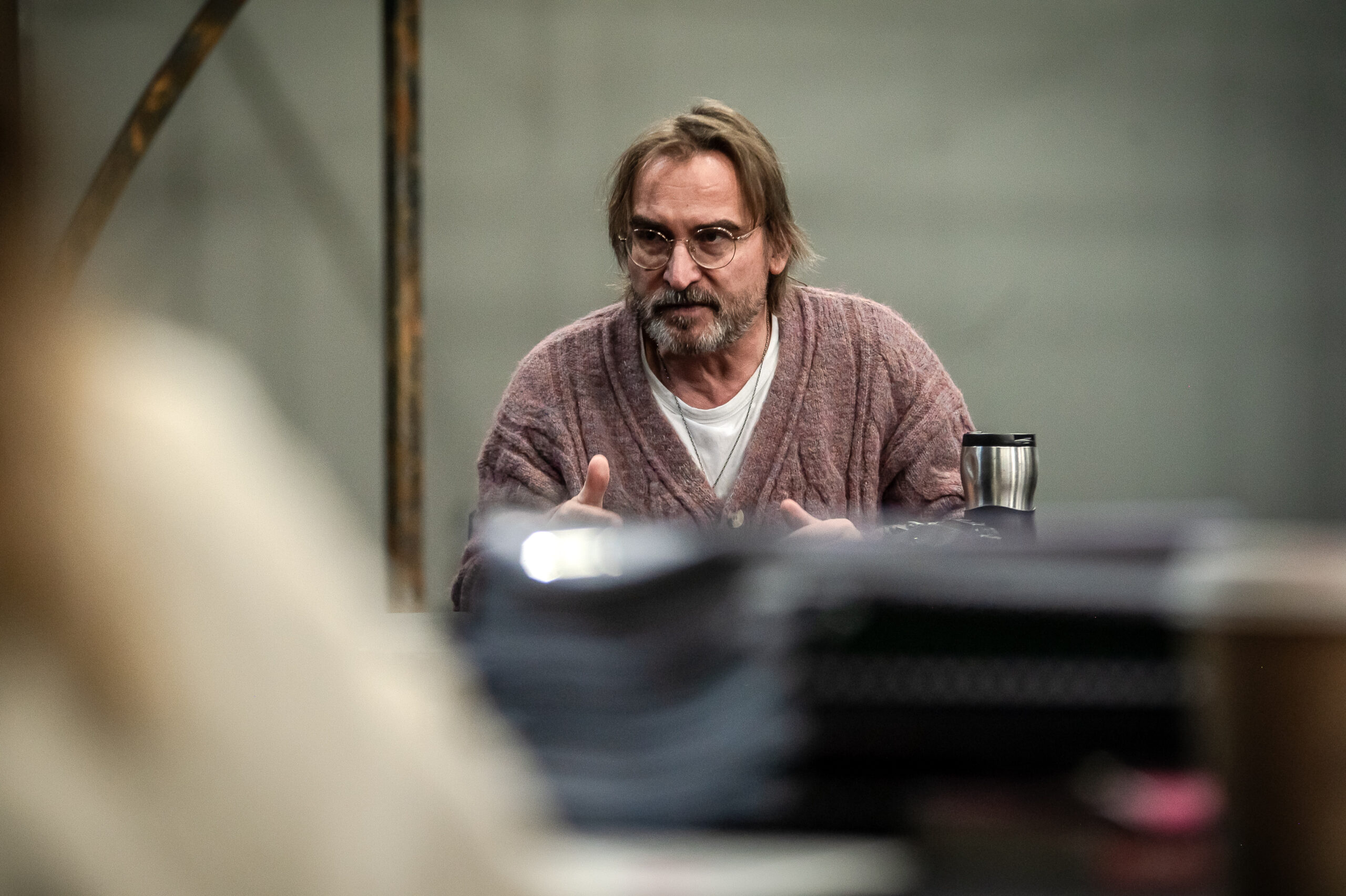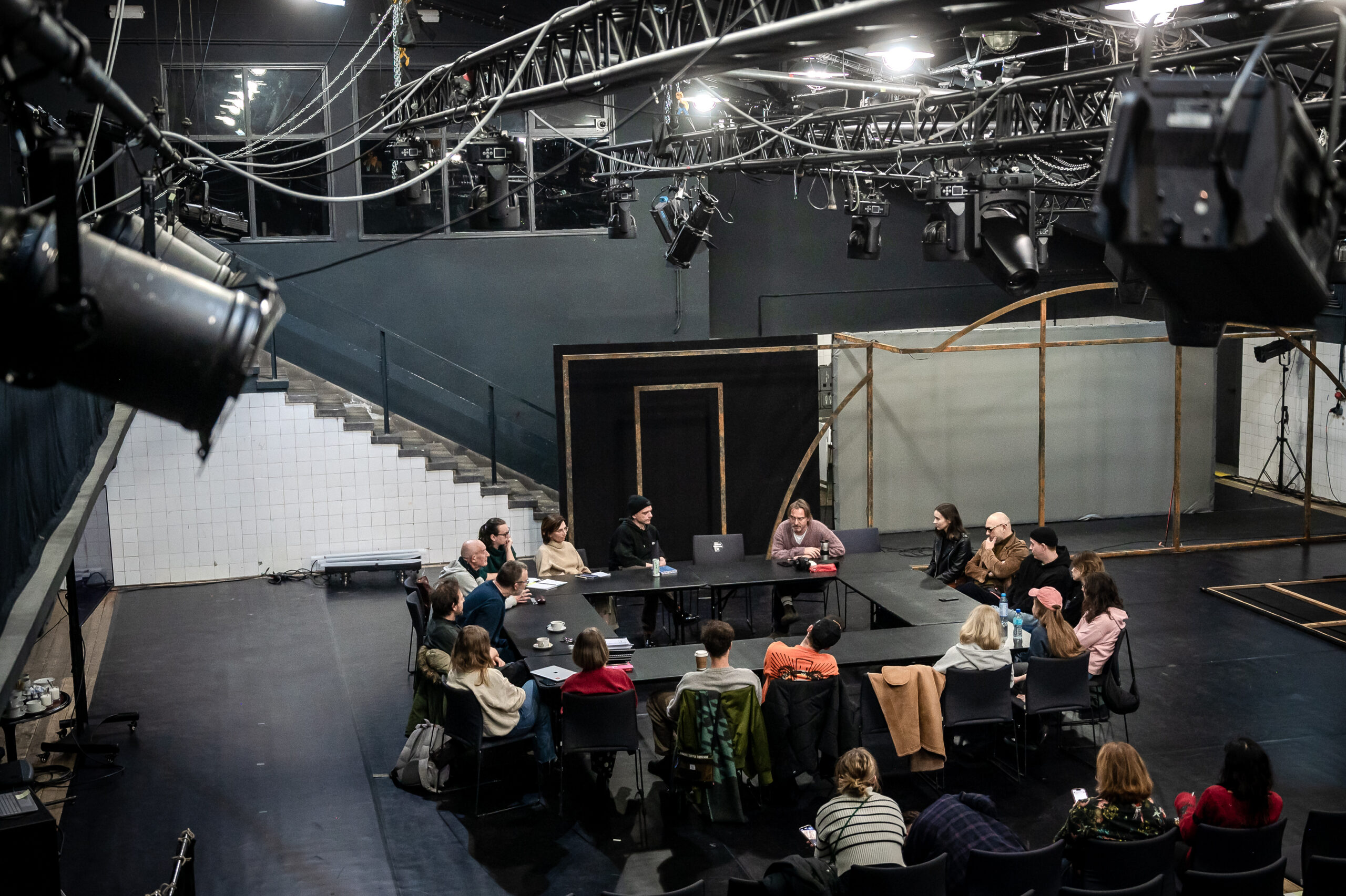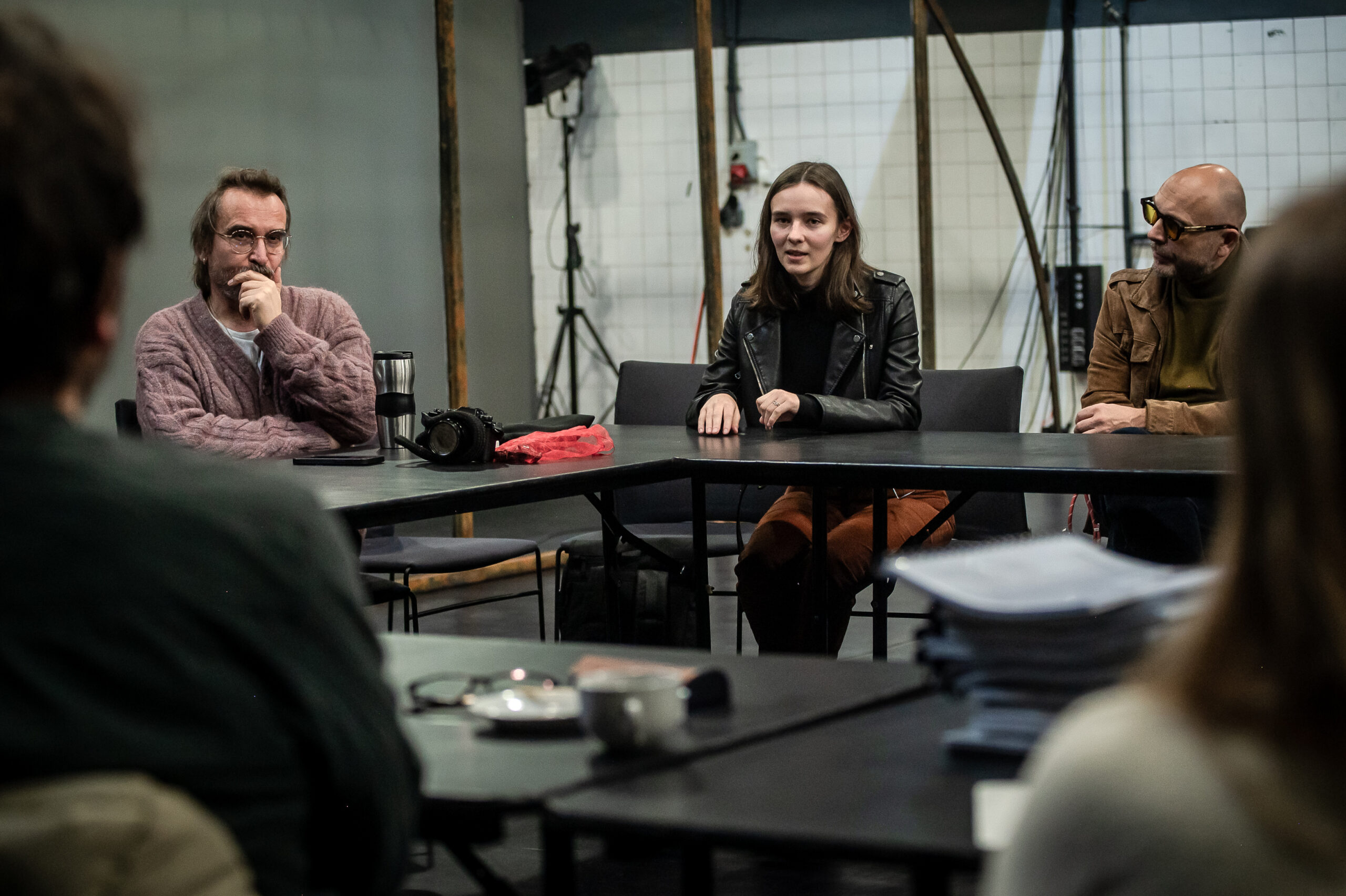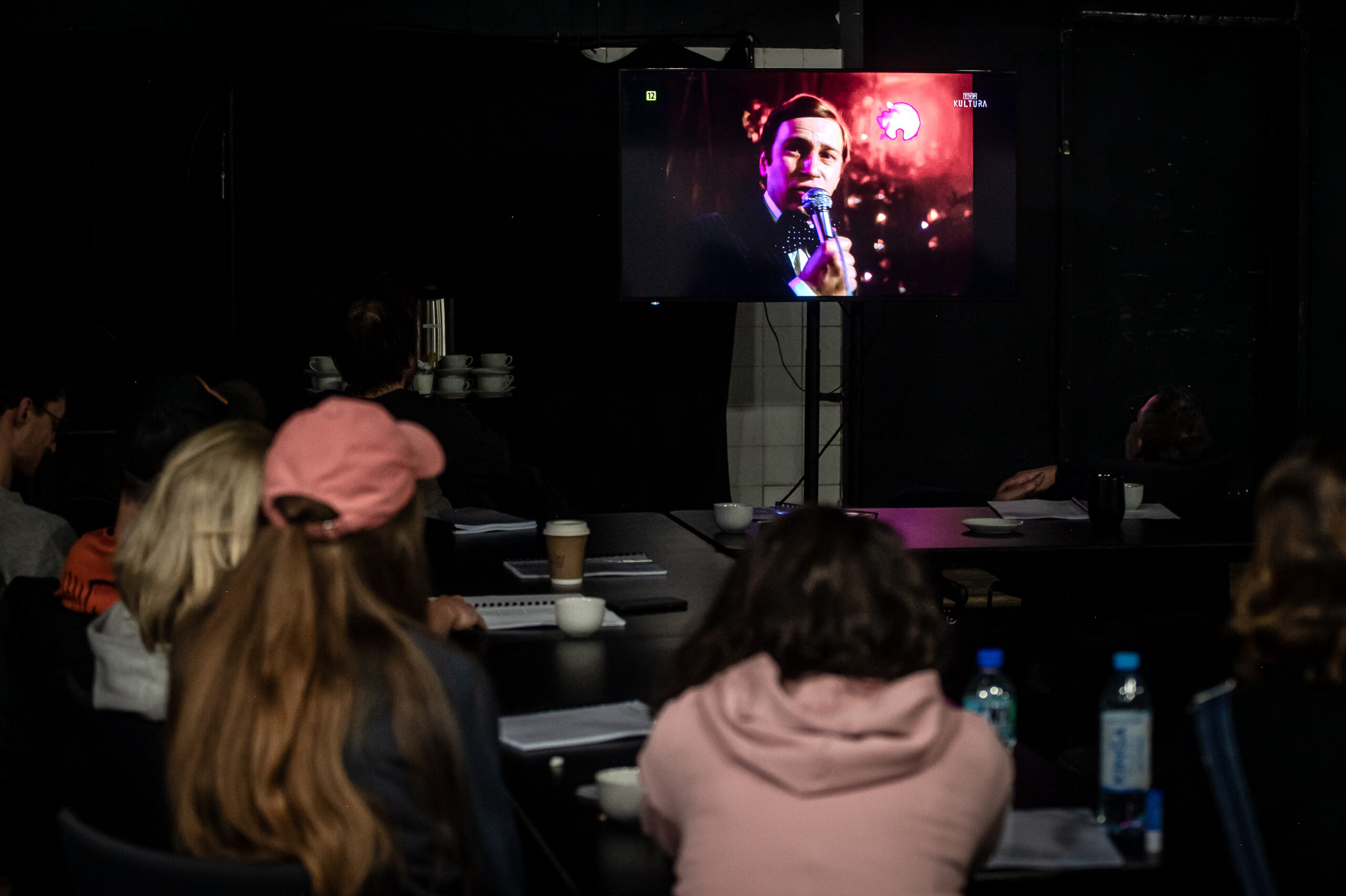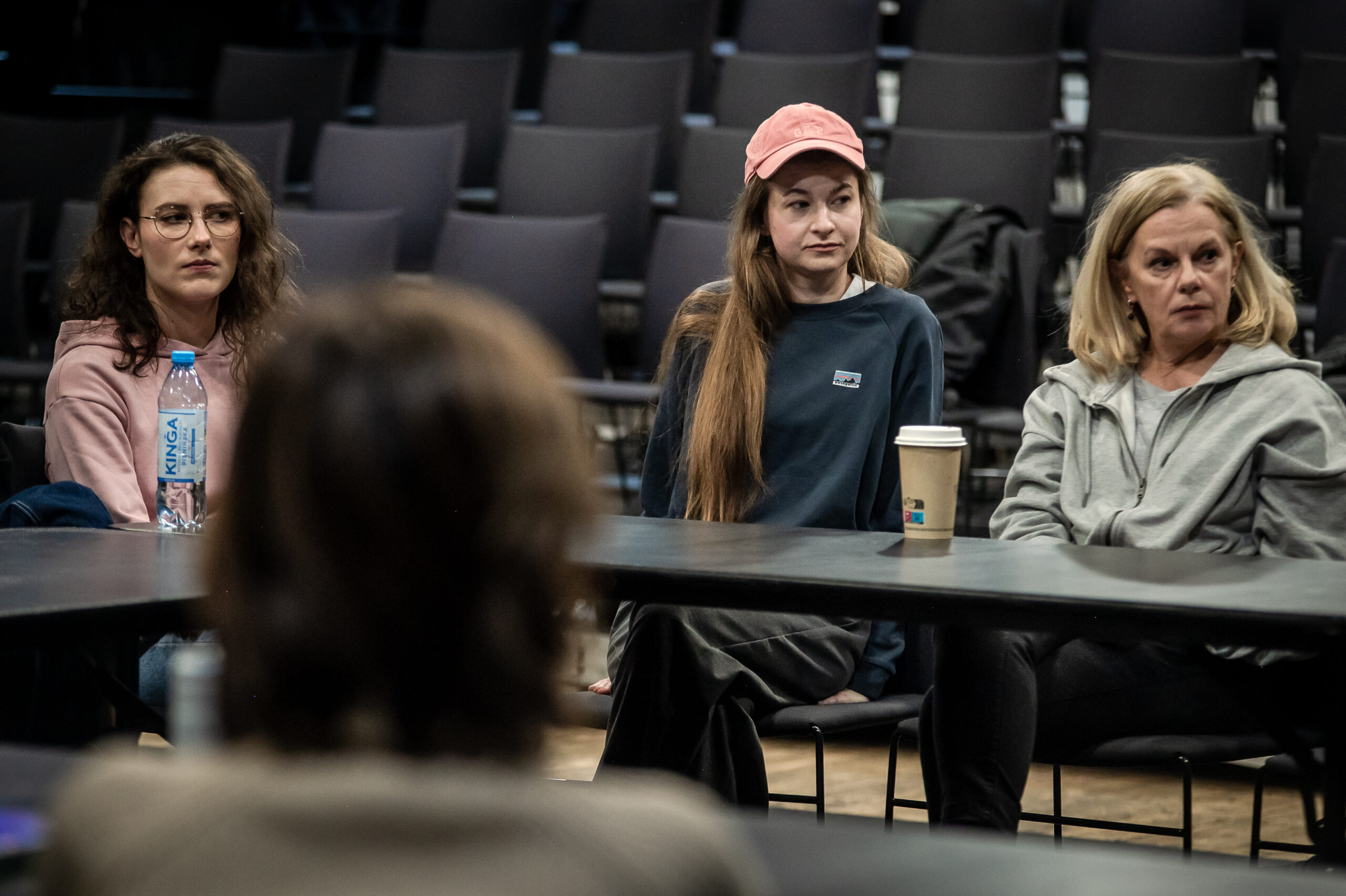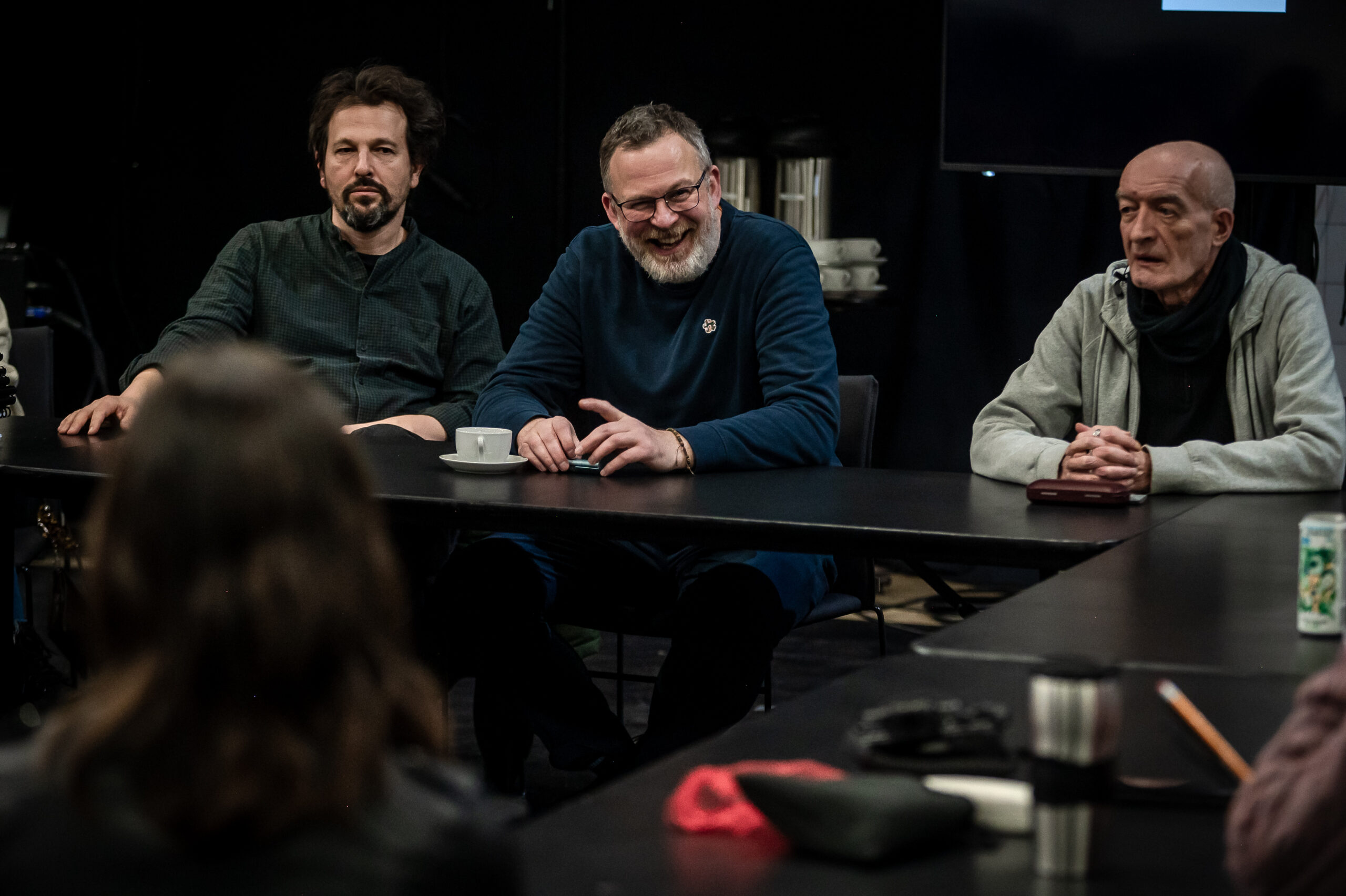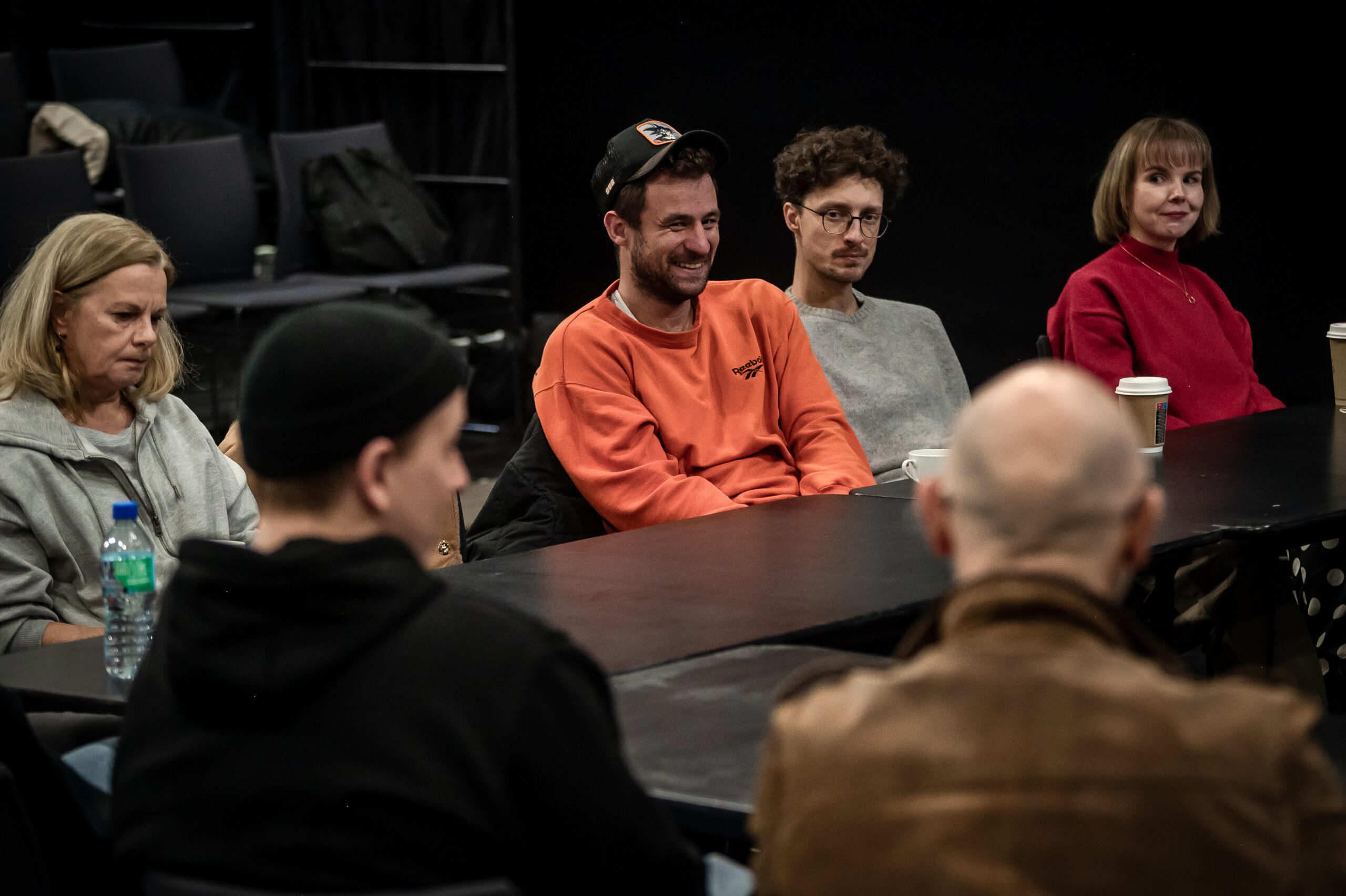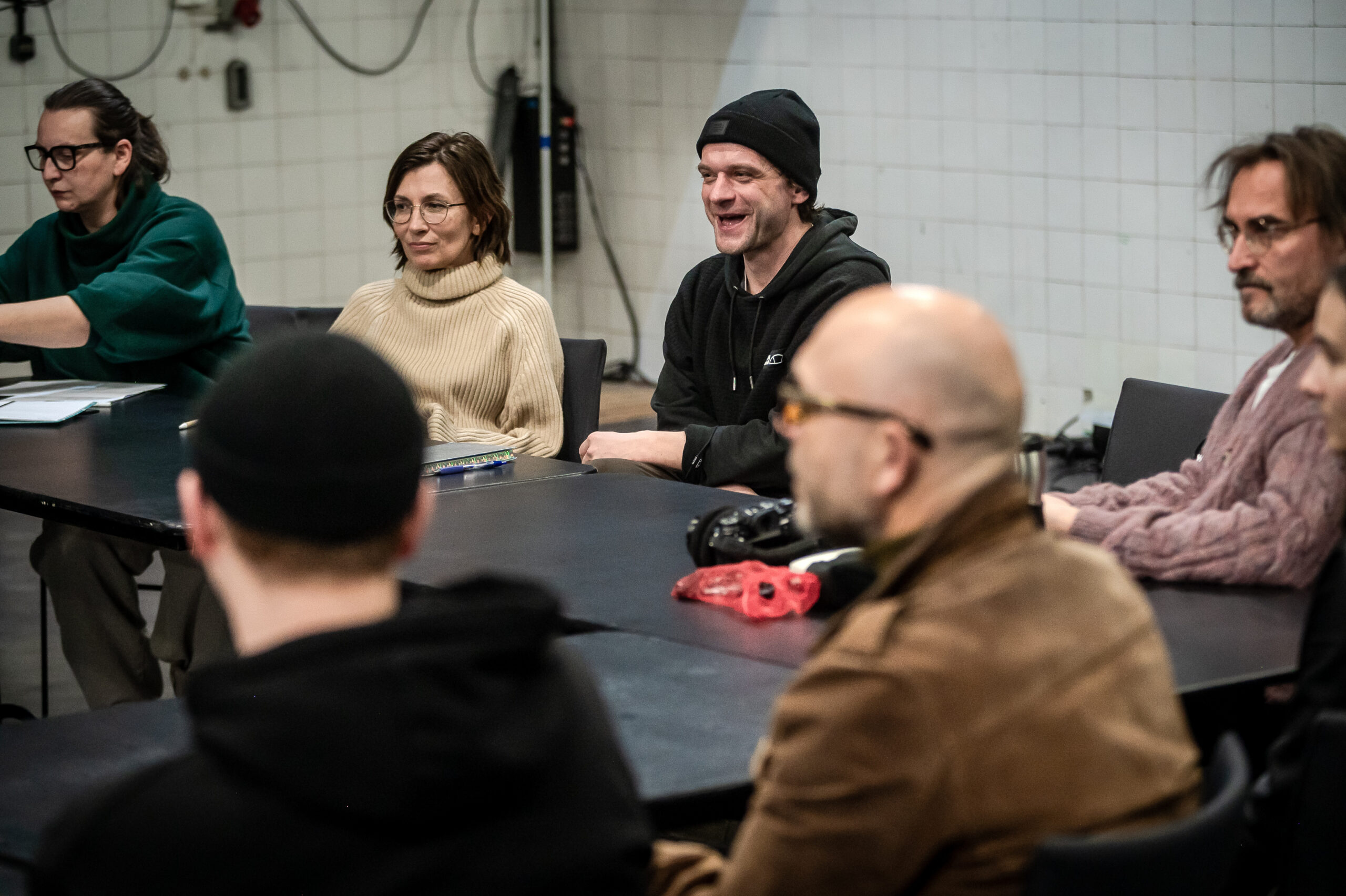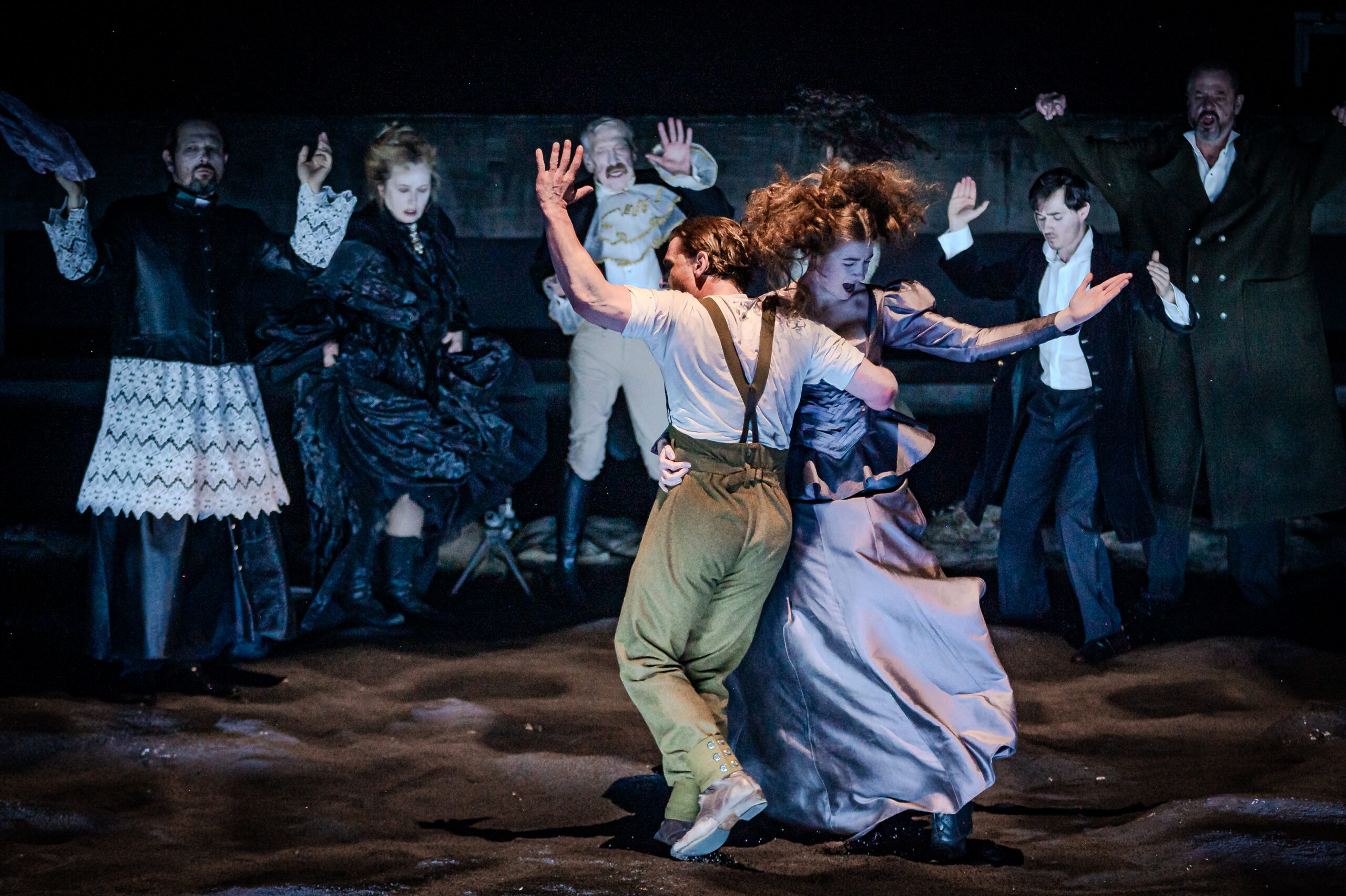
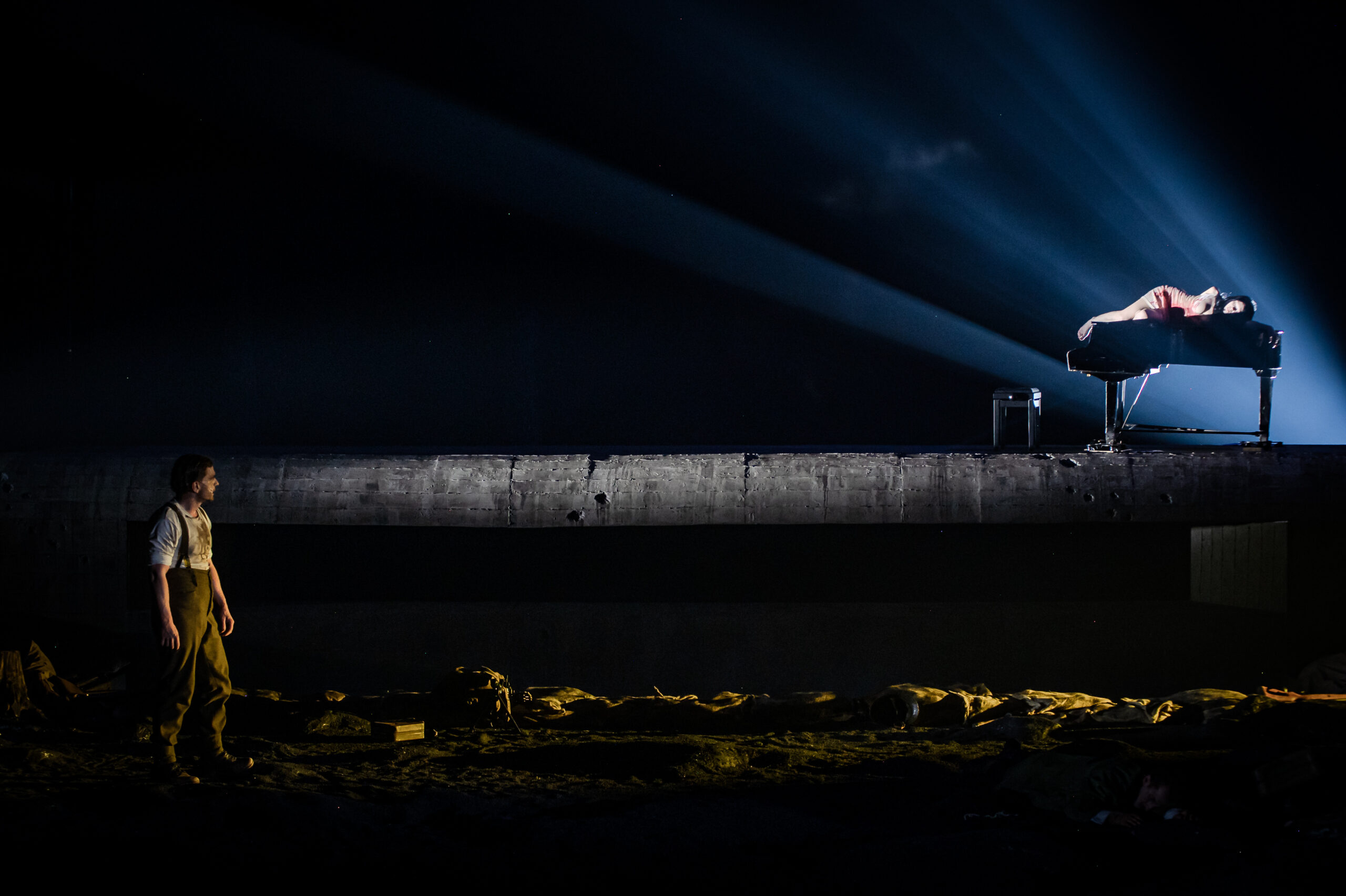
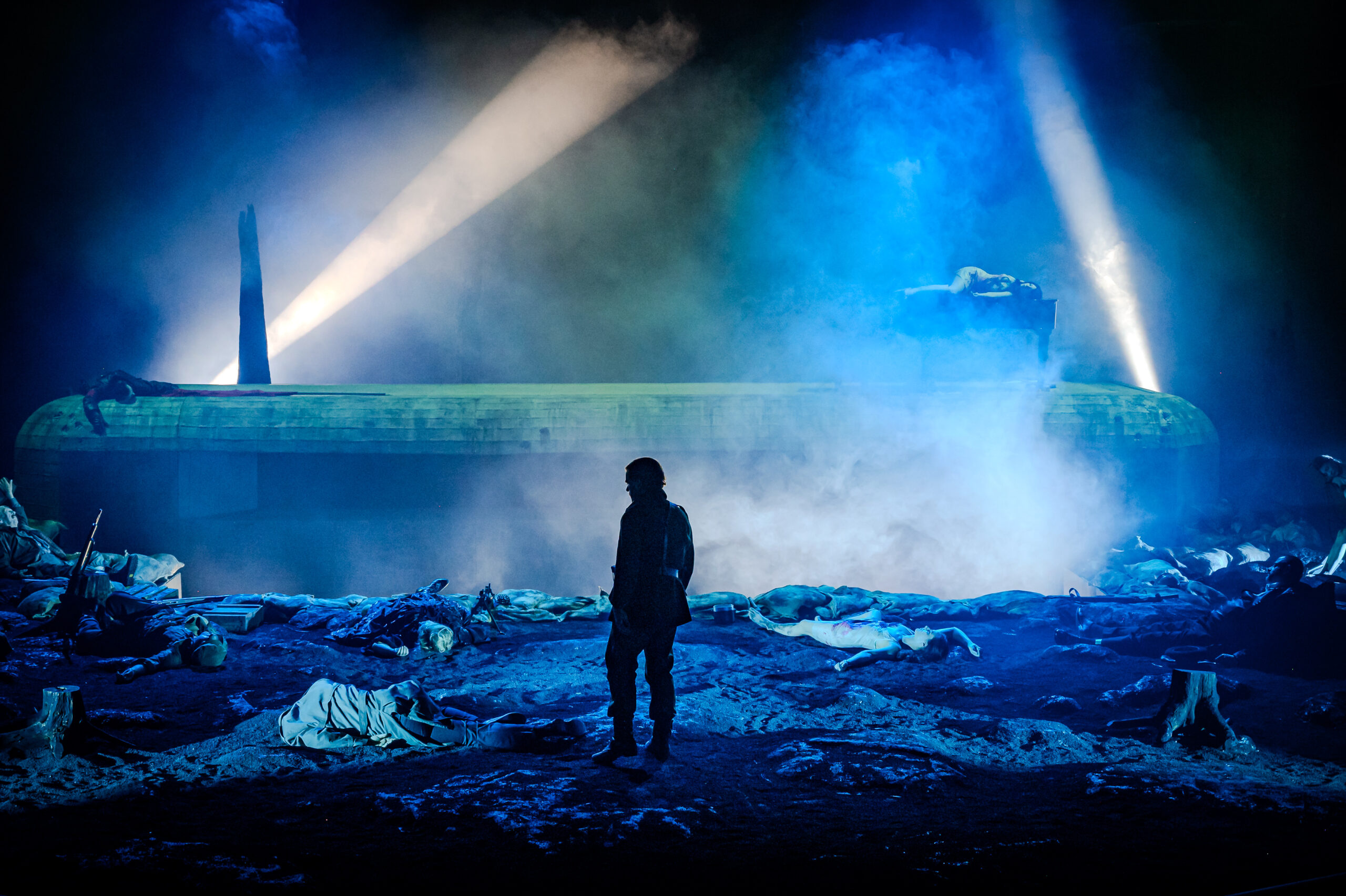
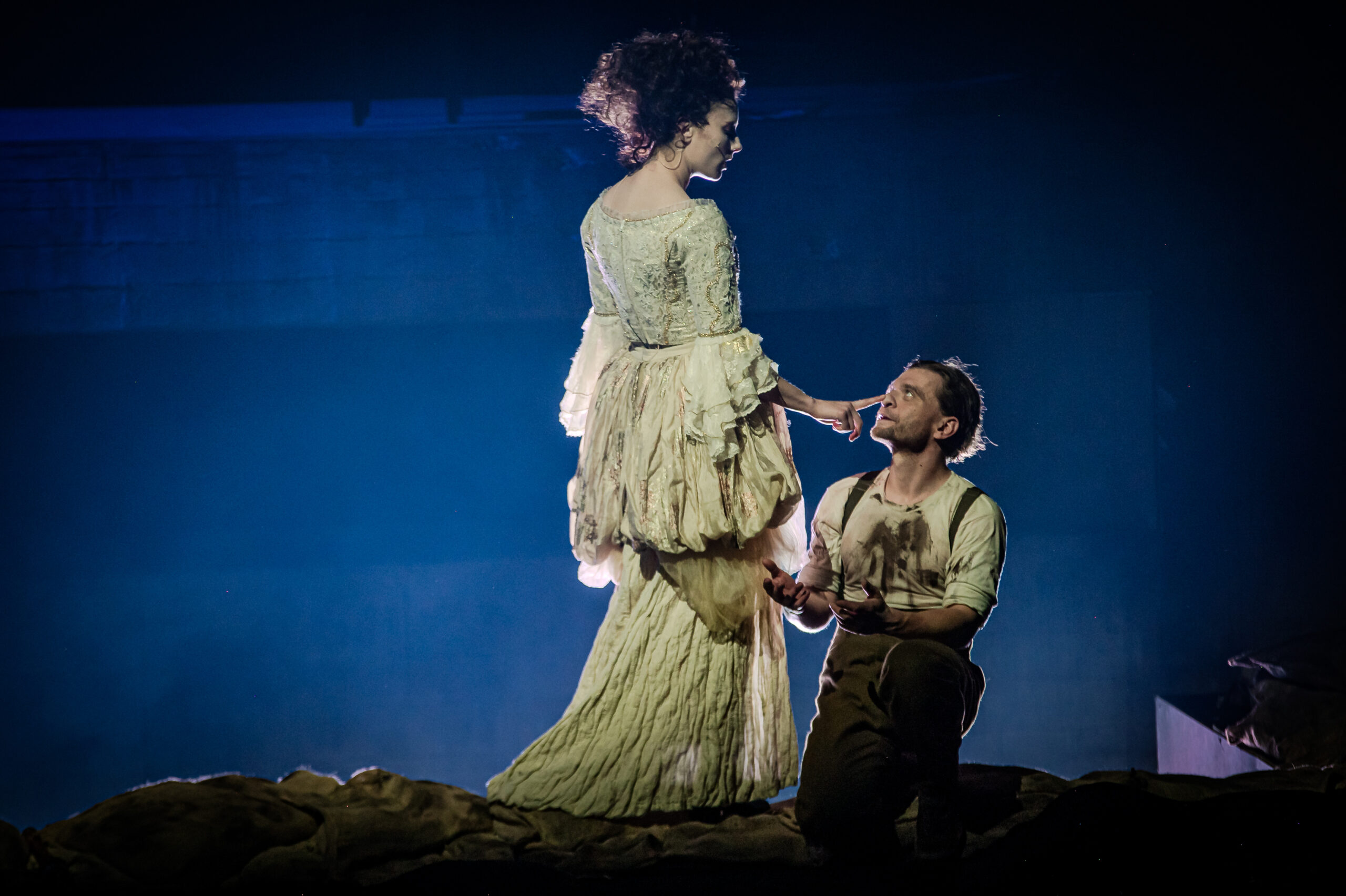
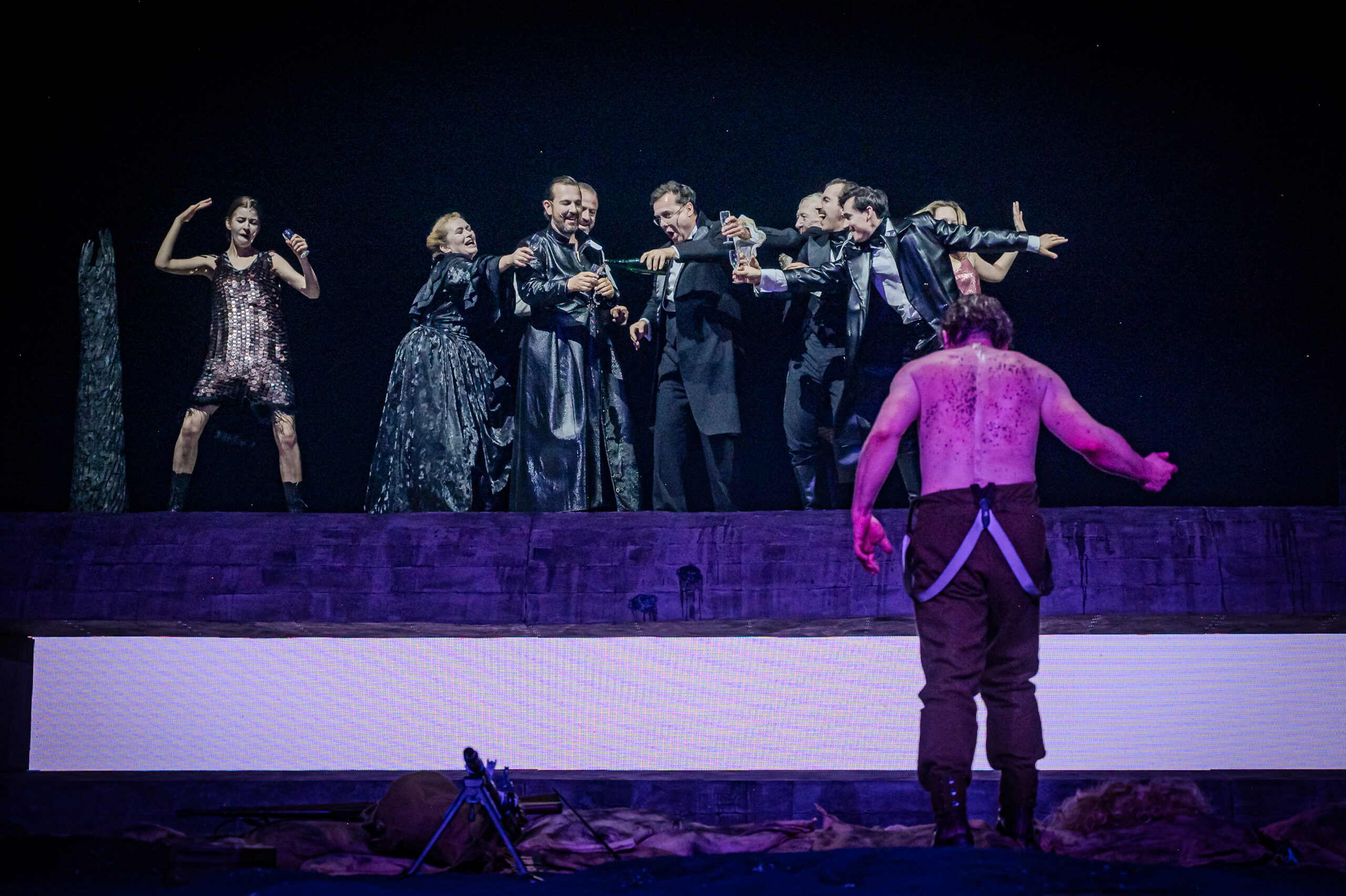
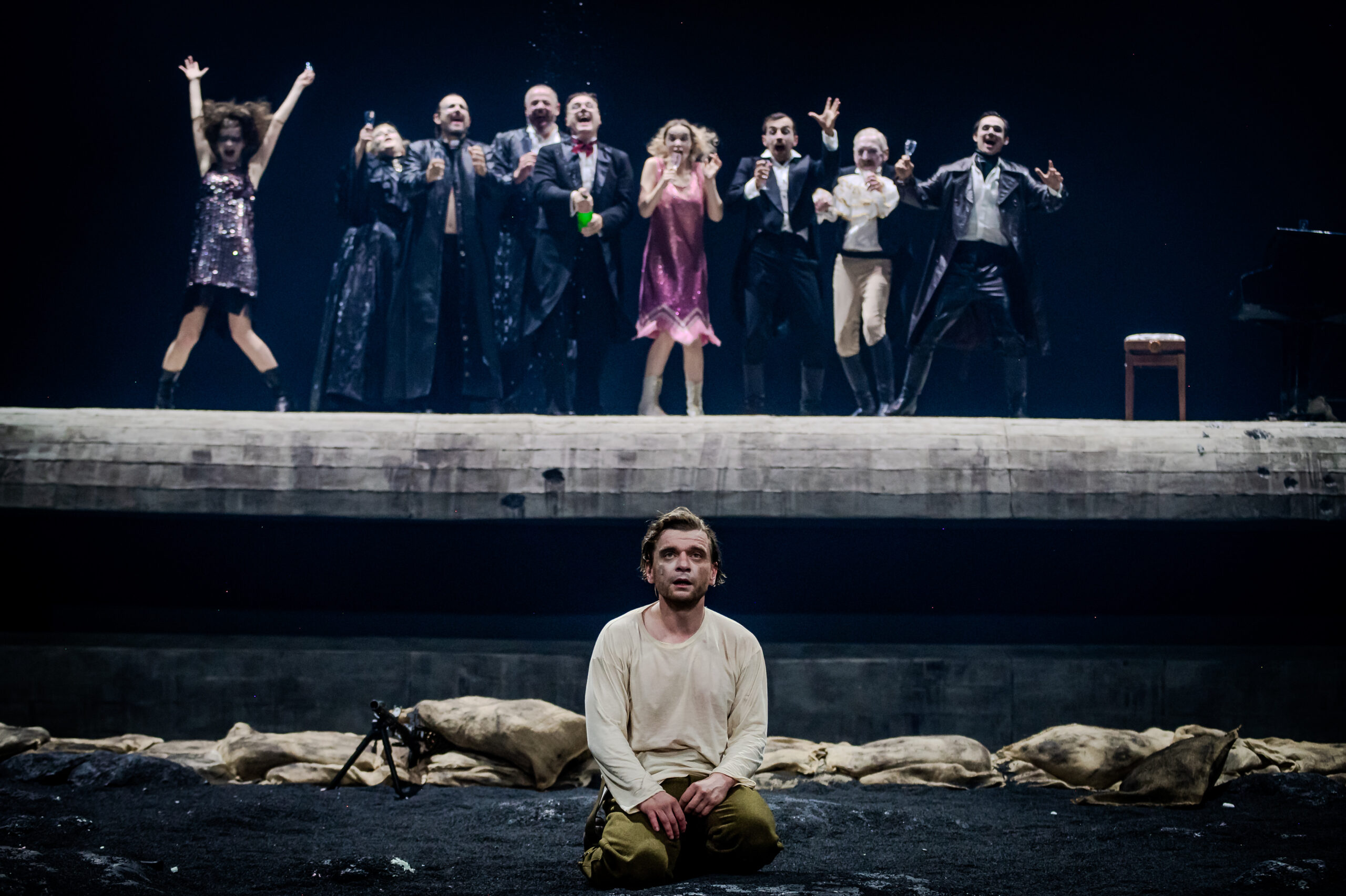
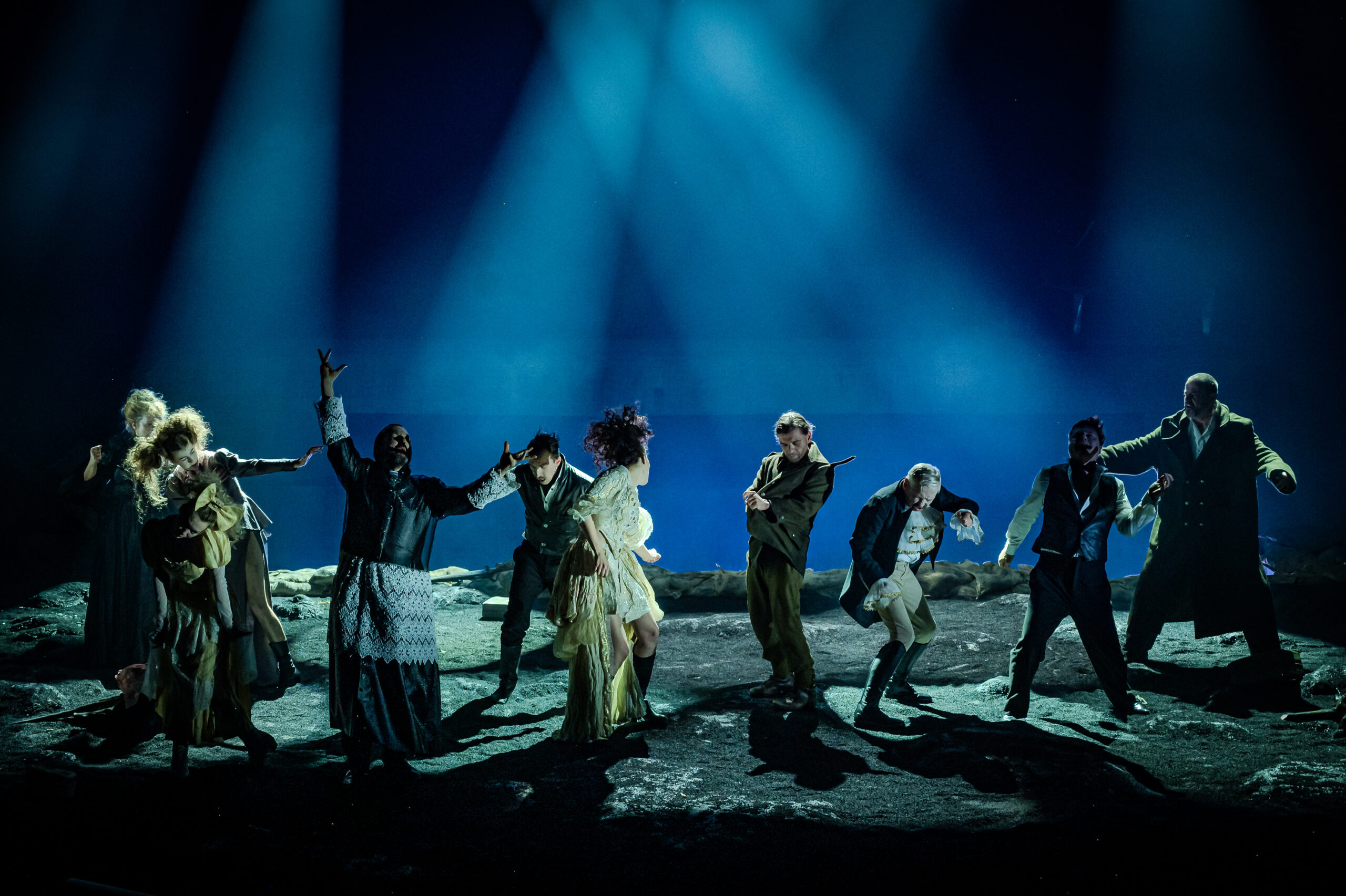
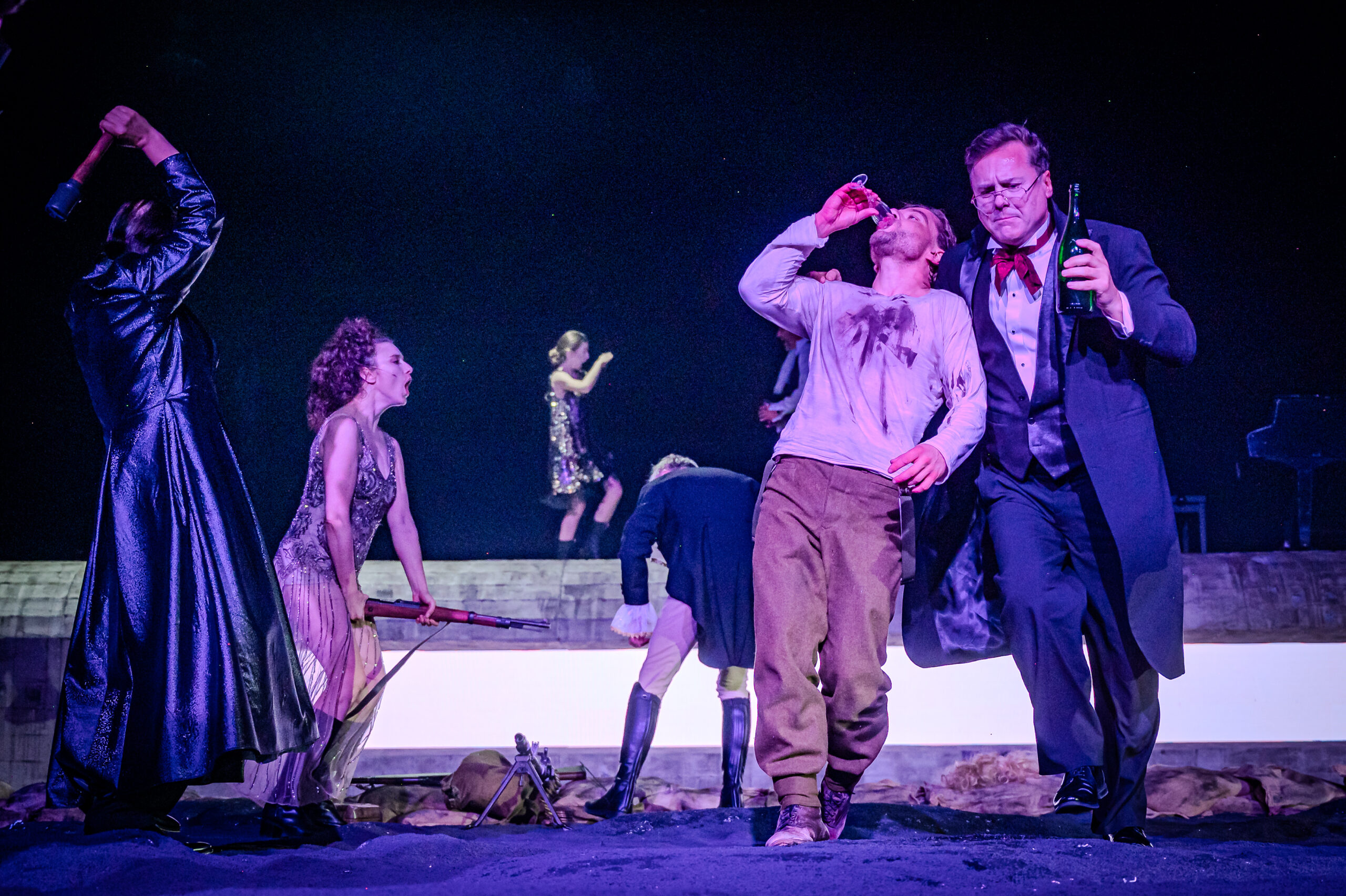
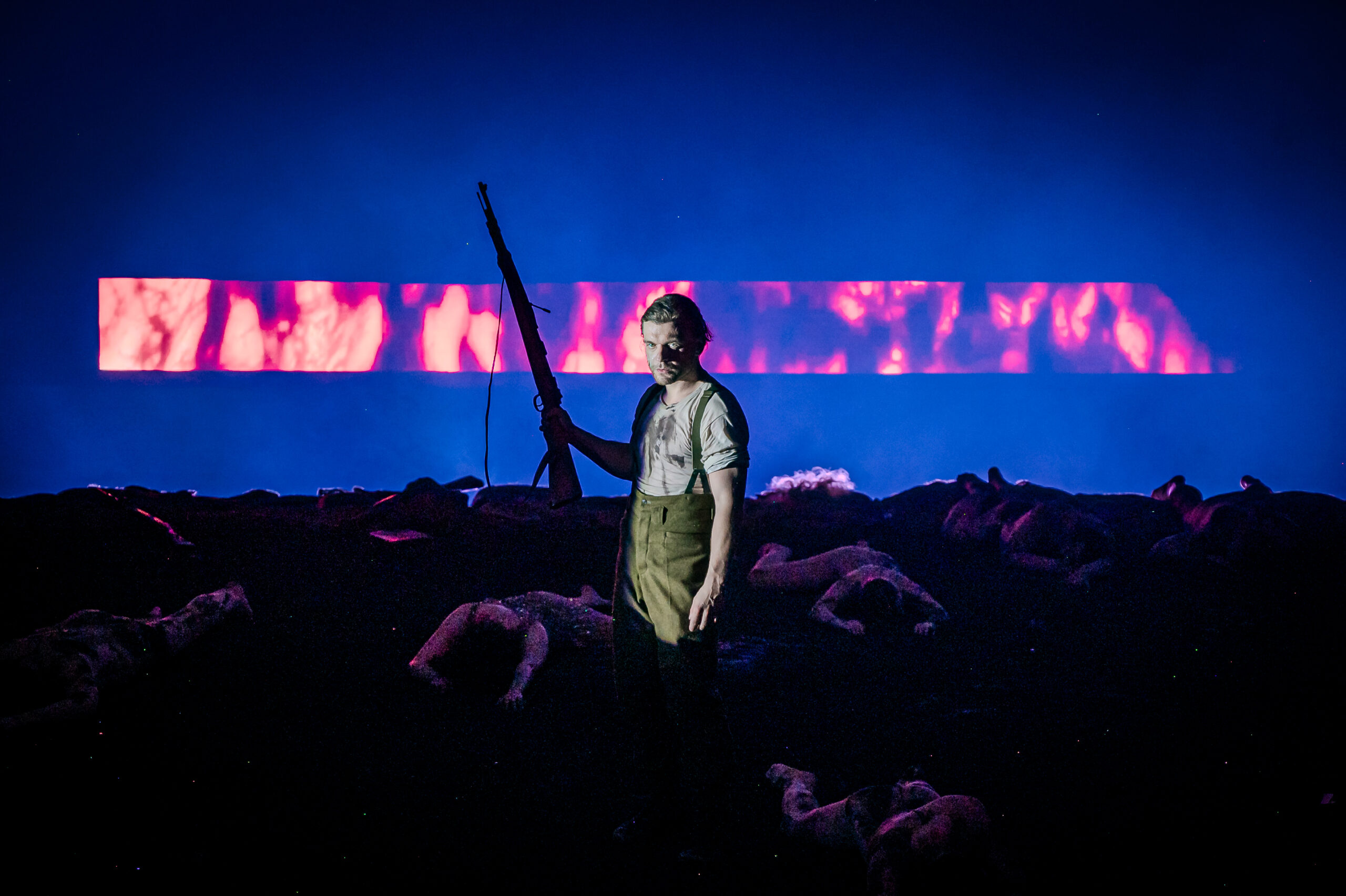
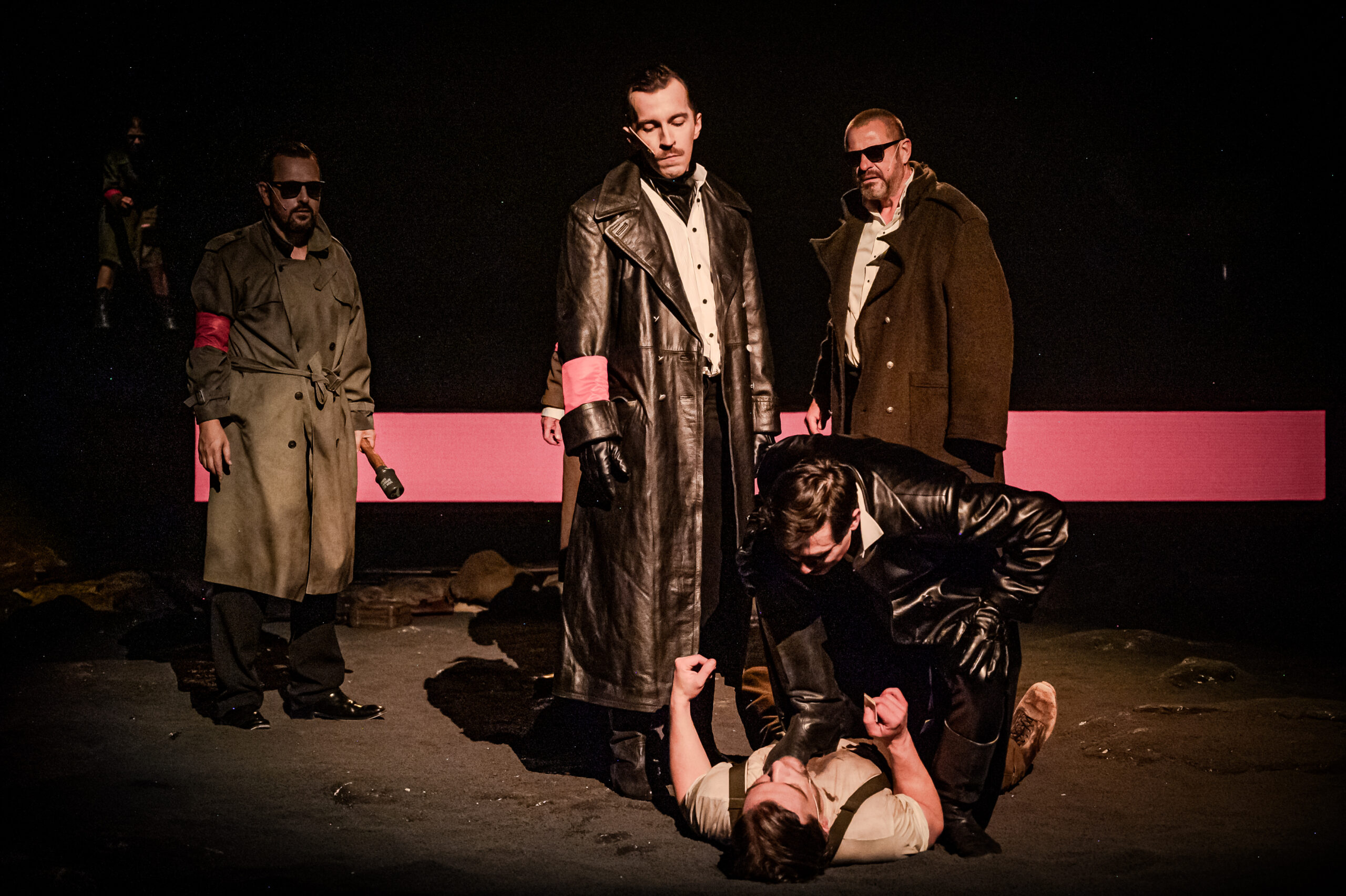
fot. Edgar de Poray
fot. Michał Grocholski
Based on the novel by Stefan Żeromski
THE COMING SPRING
This new adaptation of The Coming Spring (Przedwiośnie) by Stefan Żeromski offers no easy truths or obvious answers. It is Coming Spring seen through the eyes of a veteran—dark, unsettling, and painfully relevant. It is a journey into the wounded psyche of young Cezary Baryka, a man whose coming of age took place during revolution and war—a time marked by great hope, but also by death and moral collapse.
Haunted by the trauma of war, Cezary never truly leaves the trenches.
Are the people he meets along the way real, or are they just projections of a fractured mind? His view of the world, of others, of the future—everything is filtered through the lens of PTSD and his inability to find his place in a new, “rebuilding” Poland.
Fragmenty powieści „Instytut” Jakuba Żulczyka/ (c) Jakub Żulczyk/Syndykat Autorów
– Agencja Literacka i Scenariuszowa oraz wydawnictwo Świat Książki, Warszawa 2016
[...] Minkowska z wyczuciem komponuje emocjonalną amplitudę spektaklu, w której jest miejsce na gorycz, śmiech, ale też wzruszenie, które pojawia się w najmniej oczywistych sytuacjach [...].
Magdalena Piekarska, festiwalszekspirowski.pl
Premiere
13th June 2025
Stage
The Large Stage
suggested age
16+
Duration
110 mins (no interval)
Spektakl grany jest w języku polskim, słowackim i niemieckim, z napisami.
Please note! The performance contains smoke, flashing lights, loud sounds, cigarette smoking, nudity, scenes of violence, strong language, depictions of alcohol and weapons, as well as intimate scenes.
Upcoming events
16.01 / friday
7.00 pm
„(…) potrafi rozśmieszyć, a nieraz też skłonić do refleksji. Działa jak dobrze skrojone kino gatunkowe, z rozwiązaniami z którymi teatr, moim zdaniem, mógłby częściej eksperymentować”.
Henryk Mazurkiewicz, teatralny.pl
„(…) potrafi rozśmieszyć, a nieraz też skłonić do refleksji. Działa jak dobrze skrojone kino gatunkowe, z rozwiązaniami z którymi teatr, moim zdaniem, mógłby częściej eksperymentować”.
Henryk Mazurkiewicz, teatralny.pl
„(…) potrafi rozśmieszyć, a nieraz też skłonić do refleksji. Działa jak dobrze skrojone kino gatunkowe, z rozwiązaniami z którymi teatr, moim zdaniem, mógłby częściej eksperymentować”.
Henryk Mazurkiewicz, teatralny.pl
“The performance presents a distinctly ideological stance: radically anti-war and critical of class inequality. Its grand form and the actors’ dynamic, energetic performances make a powerful impact.”
Przemysław Gulda, guldapoleca
Both the visual and sonic dimensions of the performance are truly striking. The set up is employed with remarkable ingenuity – what at first appears relatively modest transforms with great effect, evoking both the atmosphere of a battlefield and the elegance of an aristocratic ballroom.
Donat Przybylski, Czas na Opole
FESTIWALE I NAGRODY
28. Międzynarodowy Festiwal Szekspirowski (2024)
- nagroda Złoty Yorick
- Nagroda Dziennikarzy
Creators
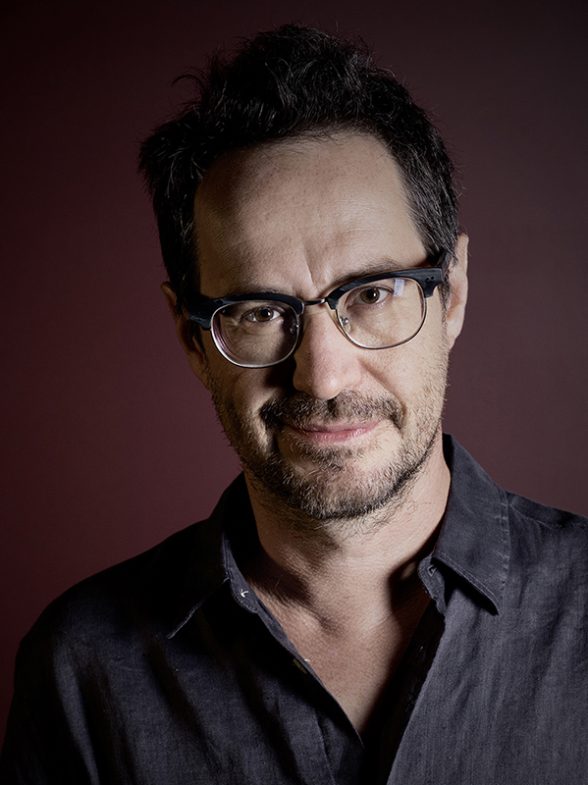
Direction
Piotr Ratajczak
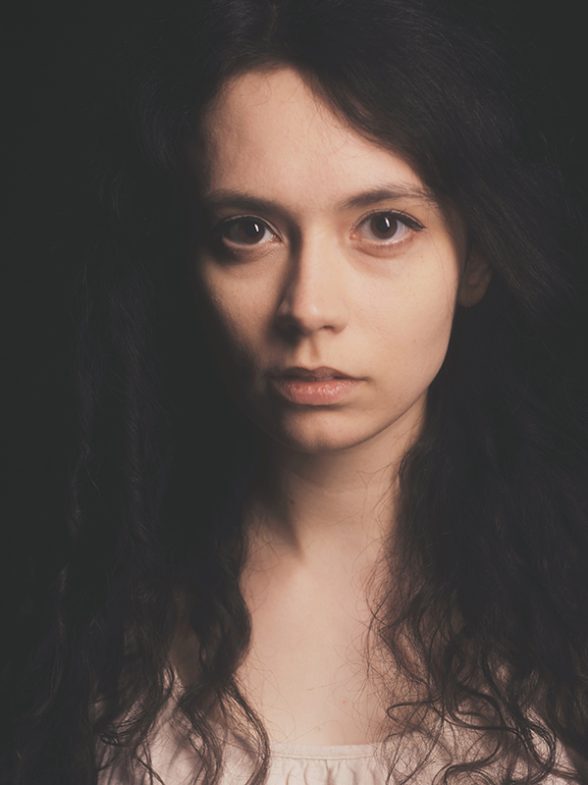
Text and adaptation
Joanna Kowalska
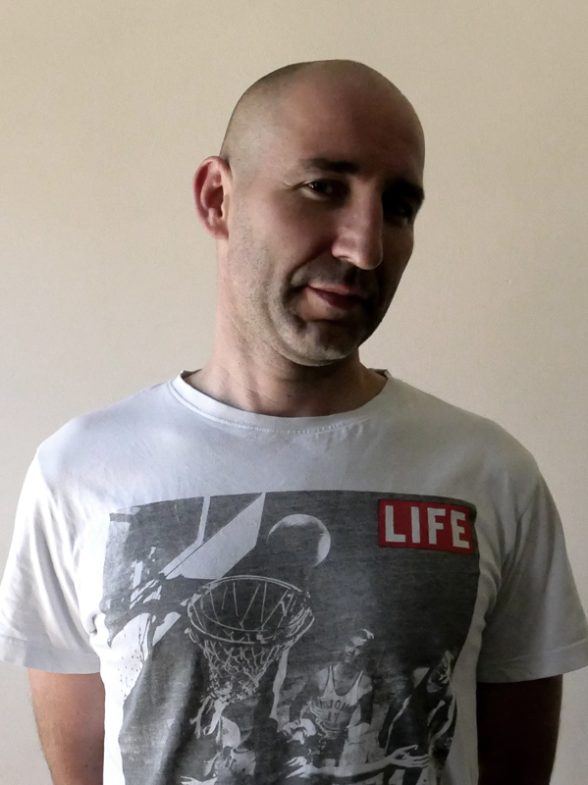
Set design
Marcin Chlanda
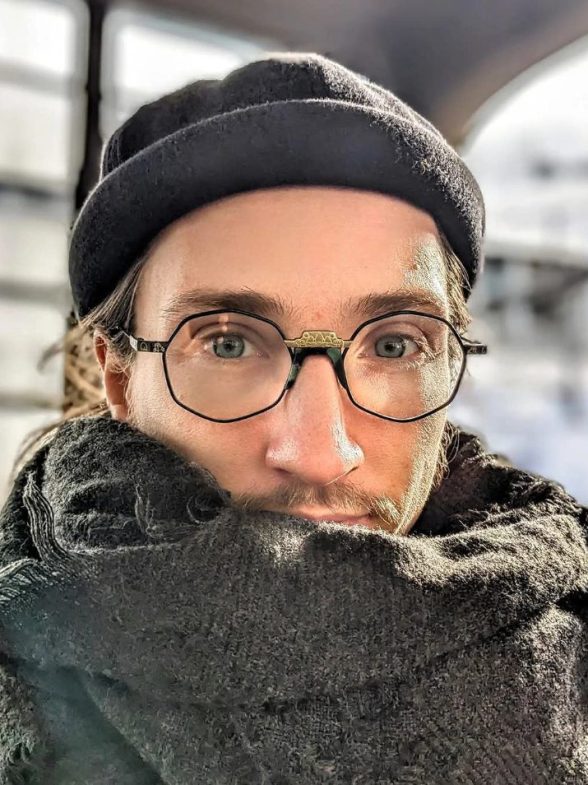
Choreography
Gieorgij Grzegorz Puchalski
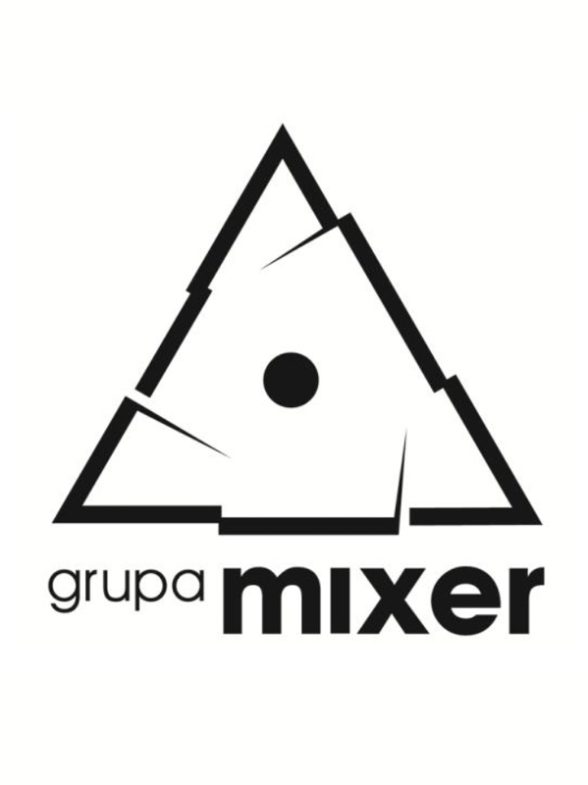
Costume design
Grupa Mixer
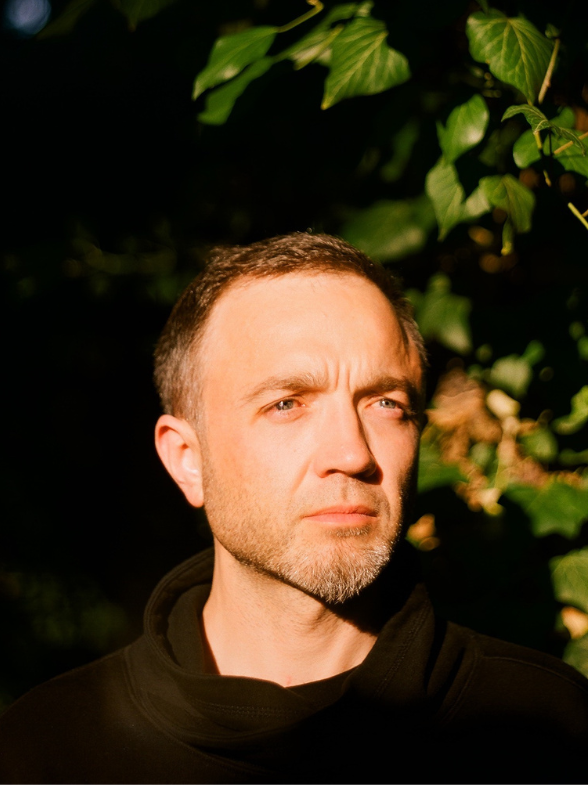
Music and music arrangement
Maciej Zakrzewski
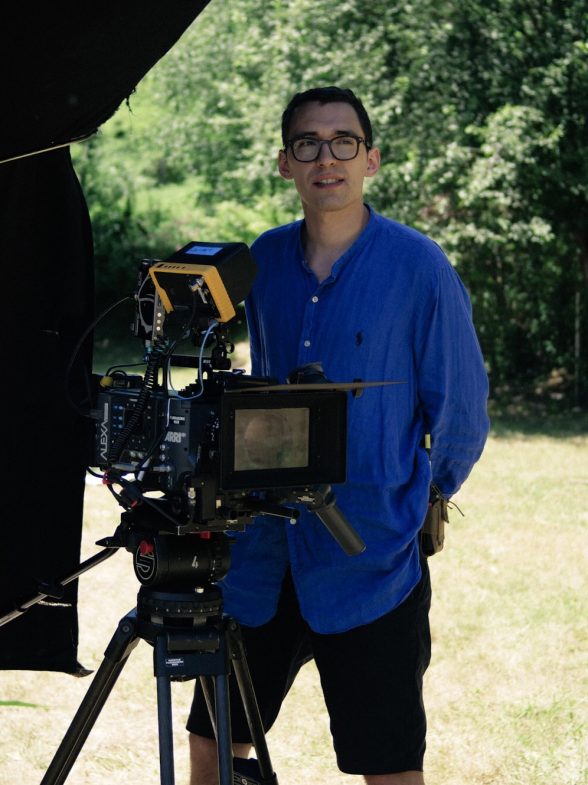
Operator kamery
Xavier Pawlowski

Reżyseria świateł
Klaudyna Schubert
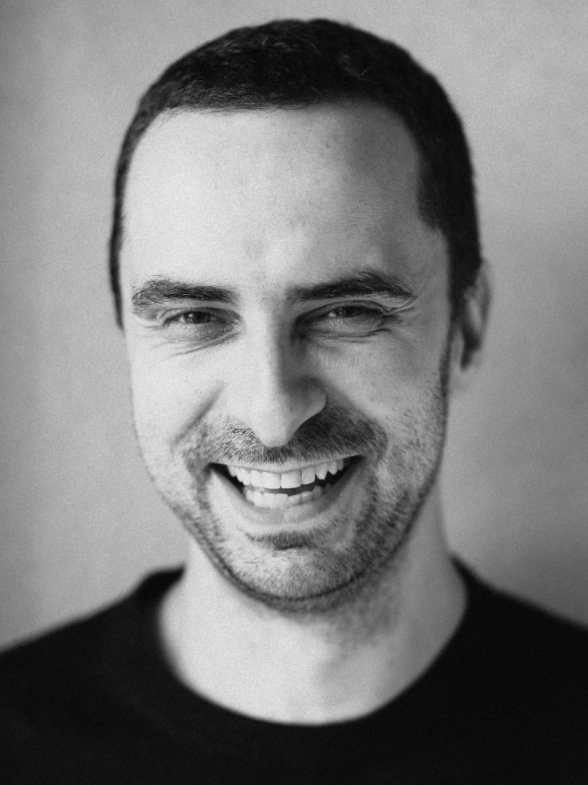
Materiał video
Edgar de Poray
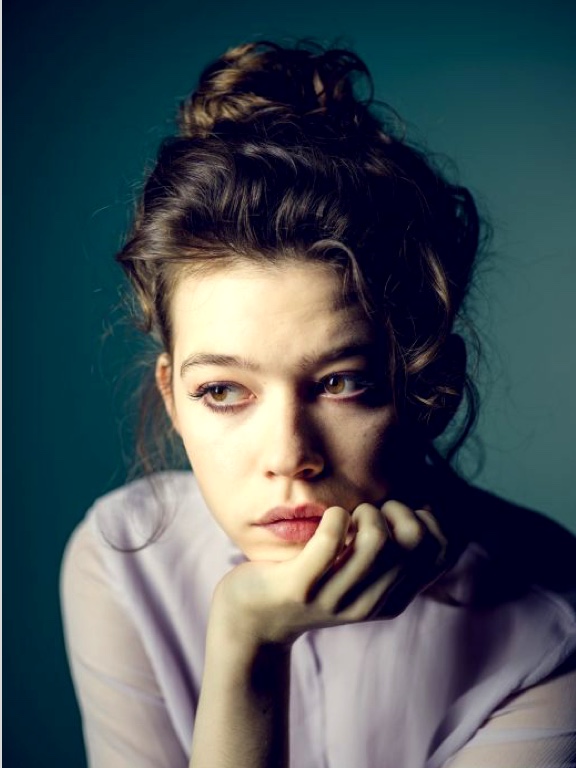
Reżyseria
Radosław Stępień

Scenografia i dramaturgia
Konrad Hetel

Kostiumy
Łukasz Mleczak
Stage coordinator
Katarzyna Siczewska
Asystent operatora kamery
Laurence M. Trottier
Tłumaczenie scenariusza
Olga Aleksandra Stawińska
Tłumaczenie na próbach
Juliusz Pielichowski
Inspicjentka (Opole)
Urszula Kraska
Inspicjentka (Trnawa)
Barbora Hadraba
CAST
x
Bartosz Dziedzic
x
Mateusz Guzowski (guest)
x
Jakub Klimaszewski
x
Anna Kraszewska (guest)
x
Rafał Kronenberger
x
Karolina Kuklińska
x
Leszek Malec
x
Monika Stanek
x
Michał Świtała
x
Beata Wnęk-Malec
x
Konrad Żygadło (guest)
x
KONKURSY
Spektakl „Sztuka kochania” został przyjęty do IX Konkursu na Inscenizację Dawnych Dzieł Literatury Polskiej „Klasyka żywa”.

Kliknij ![]() aby włączyć tryb pełnoekranowy
aby włączyć tryb pełnoekranowy







